While freestyle football continues to grow across the globe, there have been grumblings amongst both freestylers and spectators that freestyle competitions are starting to become boring. Urban Pitch contributor and professional freestyler Stephen Gray consults several of his peers to discuss the current state of these events, as well as possible remedies for their seemingly repetitive nature.
Whichever way you look at it, freestyle is a sport that is filled with subjectivity and opinion. From how clean someone’s tricks are to the most fun aspect to train, everyone will have their say on the matter. One particularly hot talking point at the minute in our still relatively young sport is the competitions. The notion that they have started to become boring, or at the very least repetitive, has made its way into the conversations of many a freestyler.
There are obviously an overflowing amount of factors that go into the structure and organization of competitions. In fact, it probably is best to remember to view them as events, not just competitions. Therefore, the scope of the question is actually larger than I first thought.
From my personal experience, I think the word “boring” is perhaps a little too strong for what is actually happening, but I can also see why others may feel that way. While I may not be competing at the most elite level, I enjoy competitions overall and see them as an opportunity to keep bettering myself. There is a lot to be learned from watching them as a spectator too.
The numbers of participants in competitions should be a good indicator for how our sport is growing, so with each year passing we see the numbers increase. However, it is important to take into account that many freestylers are paying for their travel out of their own pocket, therefore they will only choose competitions they feel are worthy of attending.
If we focus on the competitions themselves, (and I don’t mean online ones obviously), are they losing their appeal? Are they all too similar? These are the questions that can, and perhaps should be answered by both freestylers and the non-freestyling “muggles” of the general public.
I don’t think there is any doubt that we are starting to see some familiar patterns in competitions — for example seeing the same freestylers reaching the same stages and being able to predict what they will bring to each stage. I don’t have a problem with this at all, because of course the level is still getting higher and higher and there are still a few upsets along the way.
However, what I do have a potential problem with is that the combination of a repetitive competition structure and judging system is influencing how freestylers develop their own freestyle.
Consequentially, people will take the tricks from freestylers with success in competitions and incorporate them into their own routines thinking they are essential. In other words, we’ll be making the parameters for a “winning formula” tighter and tighter. Now while it isn’t certain that this will happen, and some may claim that’s just the natural evolution of freestyle to copy and learn from others, it ultimately comes down to the judging system of competitions.
Judging System
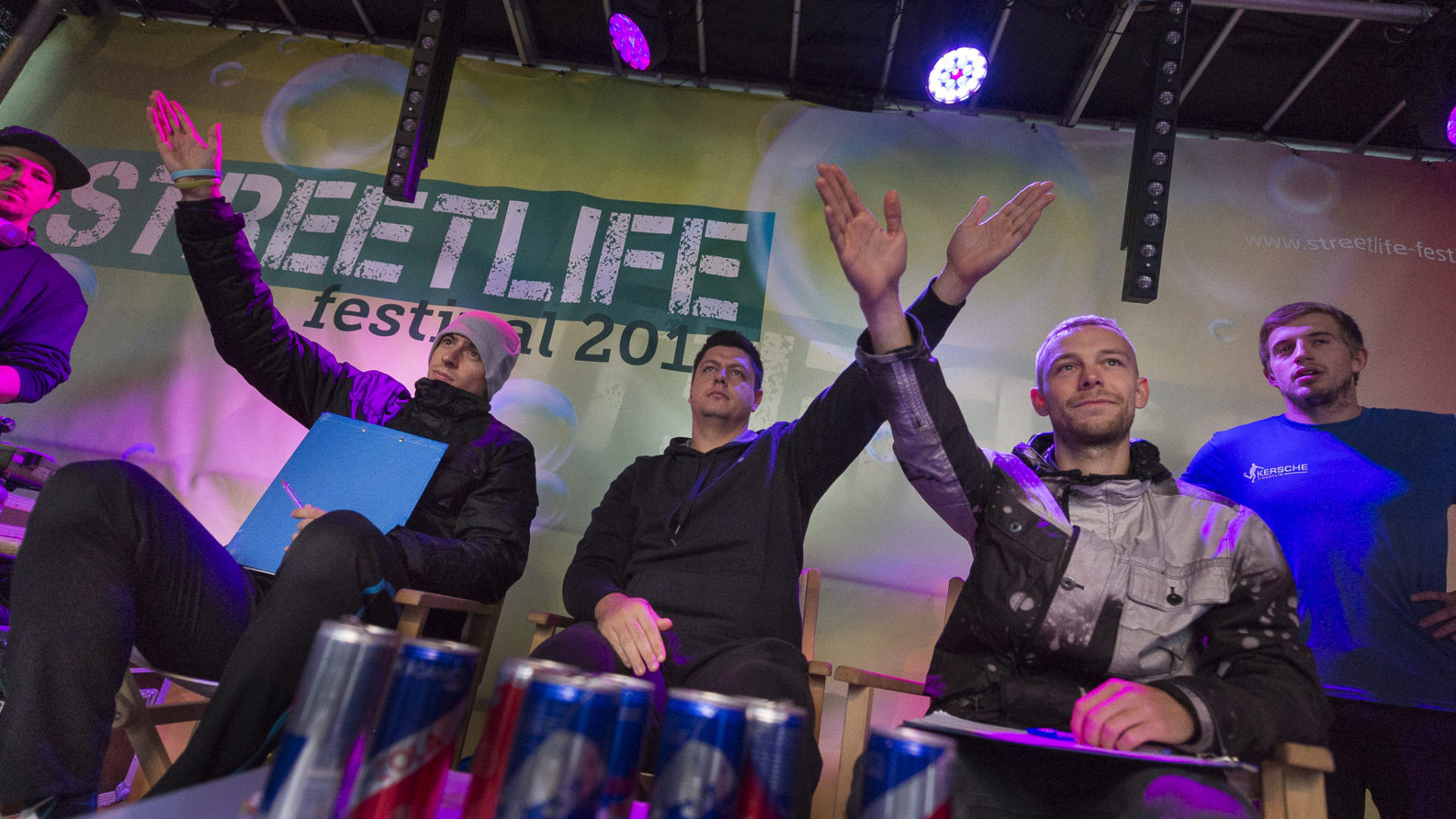
While we may never find a “perfect” judging system, it seems that many freestylers would not be opposed to a new approach in order to freshen up competitions.
“I think the system we have in battles right now is a bit too unclear, especially for those who aren’t freestylers,” says Swedish freestyler VLO. They will never be able to understand as spectators how it works.”
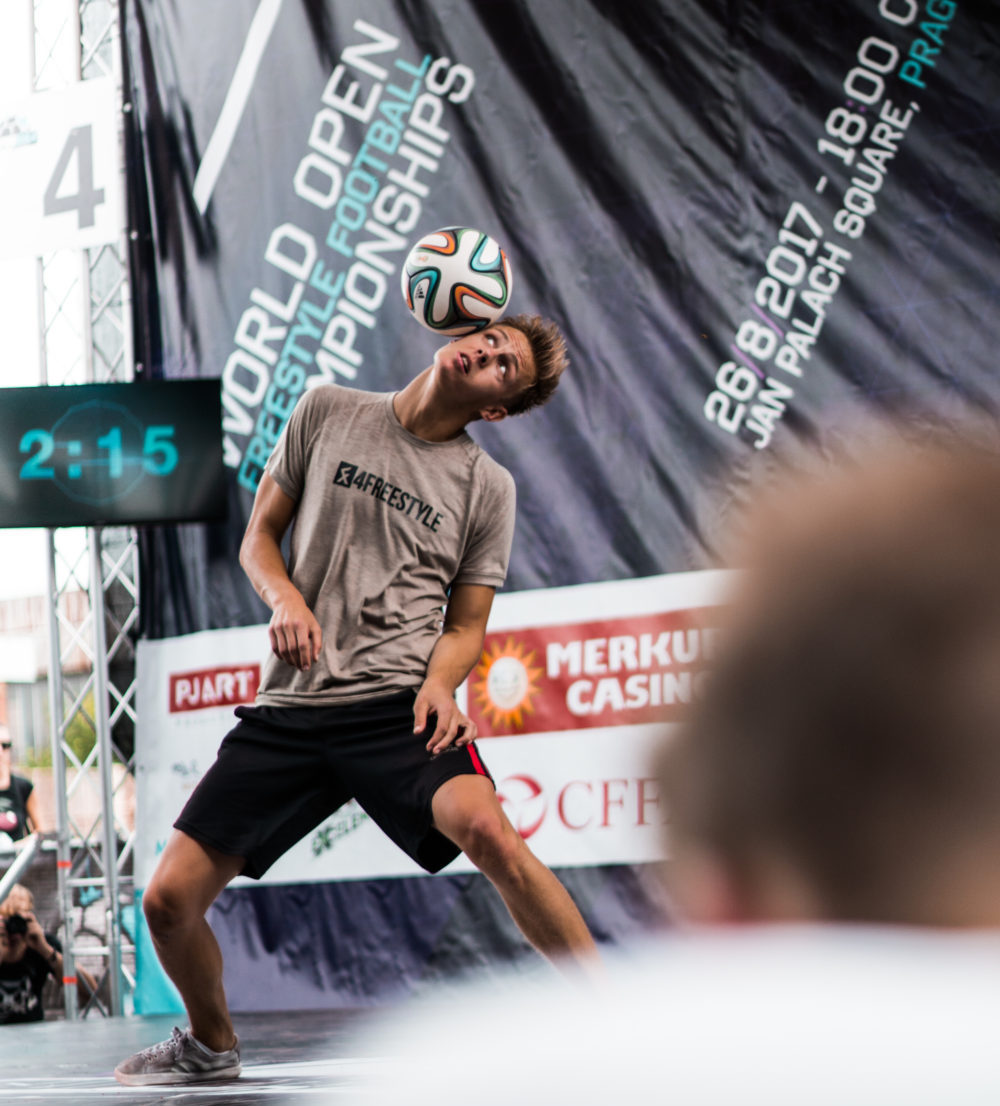
In addition to clarity, a new judging system could perhaps prevent monotonous routines and allow different types of freestylers to advance to later rounds.
“I also think that with a new system there will be different types of freestylers that will win future competitions when it is a tight battle,” VLO said. “One example is the system Brynjar explained at Super Ball earlier this year. One judge for each criteria so that’s all they have to focus on, then award points from 0.5 to 5.”
Again, the subjective side of freestyle would certainly come into play, which is unavoidable. But trialling a new judging system at a major competition could shake up the structure and pique the interest of many.
Of course, we should acknowledge the substantial progress that has been made on this front. The 2009 Red Bull Street Style had a three-person judging panel, with only one being a freestyler. Also, small things like allowing freestylers to use their own balls rather than a specific competition ball has enabled us to get the most out of the freestyle athletes.
Variety In Competition Structure
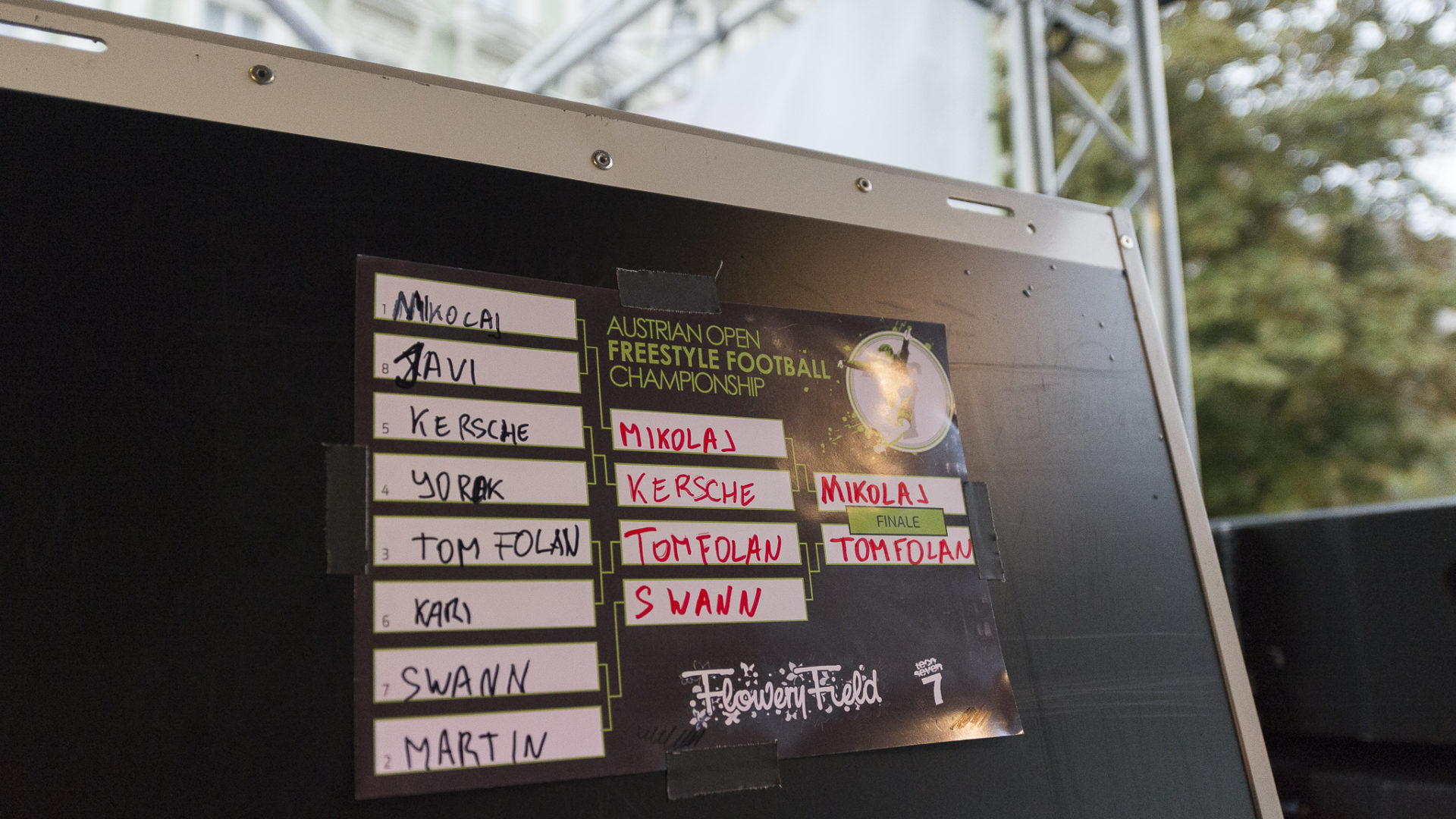
Competitions with different rules and criteria, like the Foreign Freestyle Jam — which takes into account freestylers’ stage presence and energy in addition to their routines — are always a welcome addition. However, on top of these unique events, it would be more ideal to spread out each competition to prevent having too many of them in a short space of time.
Now I’m not saying that if this year’s European Freestyle Football Championships had a different format to that of Super Ball — which was only a week before it — that we would have had a lot more entrants, but variety in competition layout is a good thing in my opinion, even if it skews preparation slightly.
In addition to switching up the criteria on which participants will be judged on, there can be more effective ways of seeding the top 32. The seeding system is never going to please everyone, but for many competitions it really is getting to that point now where there are too many participants for the judges to accurately seed each person based on their circle battle performance.
Competitions such as Lubasz Freestyle Night and others that implement a layout where there is a sub-tournament (Finale B, Intermediate, or whatever you wish to call it) is a great addition because it means people don’t just show up and get their butt kicked and then go home. They get more battle experience and get a feel for that performance and competitive element. On the flip side, yes these do really drag out a competition even more, but I still feel this is essential to enticing more entrants in the first place.
The fact that we also have different events from just battles (Sick 3, Routines, Iron Man, etc.) is a clear cut sign of development. These pay dividends to developing our strengths, style and preferences in what we enjoy in freestyle.
Alternatively, the typical battle structure of three 30-second rounds that we currently have could just as much be up for experimentation with new concepts to try as the judging system discussed earlier.
“It’s kind of a long process, but I think the guys in Japan have been dipping their toes in the water,” said Filipino freestyler and two-time Asian Champion Philip Warren Gertsson, aka PWG. “Tokura organized a competition in a battle format, but instead of the traditional three-by-30-second format, they did a flow, big trick, and battle round of 30 seconds each. I think formats like this could possibly have a future in freestyle. I also think that we need a competition system that the common man can understand and relate to. In a battle, no one besides freestylers understands why one guy won, while the other guy lost.”
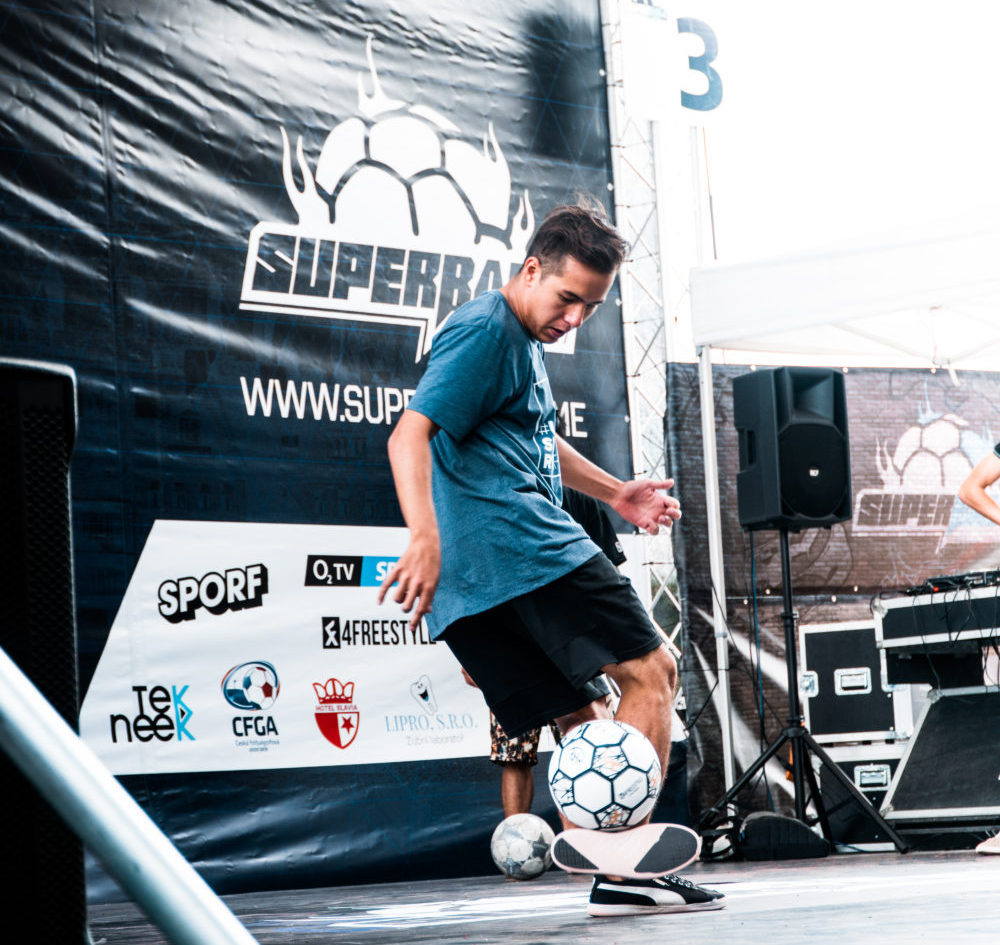
While I don’t think that switching up the battle format would appeal to everyone, I have no doubt it would be an interesting watch and would produce some very different thinking from the competitors. I suppose it is also still at the mercy of whatever judging system is used as well.
Selling the Sport To The Public

Everything mentioned so far has been mainly from the perspective of the freestylers. We must also take into consideration that freestyle is still very much a sport in its infancy. In order to grow, the events have to be sold to the public to an extent.
The staging, the lighting, and the overall quality of live streams are all really big deals, but the fundamental layout of competitions and rules in judging will be equally as important. This is perhaps where some will argue we don’t want to get too caught up on the freestyle side of things that it loses its entertainment value. The idea of getting a celebrity who knows nothing about the conventions of freestyle to be a judge will continue to go down like a lead balloon among the majority of the freestyle community I am sure. It’s all about maintaining the balance of commercial appeal and the integrity of freestyle.
The final point to make is about live commentary on streams. I think this should and will be a huge thing in freestyle and we should push to have it whenever possible. A couple of knowledgeable but charming individuals chipping in with their remarks, with the right level of enthusiasm, will no doubt help to bridge that gap between the public. This would surely up the entertainment value of competitions and make people feel like they are watching a really professional event, whilst also being educated about freestyle in the process.
The Repetitive Nature of Training for a Competition
Finally, we should address the training that each freestyler goes through before a competition. In the months and weeks leading up to a major competition, the way freestylers train is much different than how they would for fun. In fact, the difference is absolutely massive.
When training for a competition, you are expected to cover multiple aspects of freestyle — from uppers and lowers to sits and blocks — not just what you enjoy. While some prefer the clarity in knowing how they will use each aspect in their battles, for others, it can really deter from the things that they enjoy most about freestyle. It can become repetitive and uninspiring in comparison to training the aspects they actually want to train.
I have always maintained that the battle scenario does not show the full extent of how good a freestyler can be. Competitions really aren’t for everyone.
You therefore have to ask yourself what are you really getting out of competing and weigh out the pros and cons. For some, the experience and challenge is enough — but others just can’t wait to change their Instagram bio to “Top 30 in the UK” (even if there were only 32 entrants).
“I prefer to practice freestyle for fun 100 percent, and I’m sure everyone else is the same, as it is the essence of freestyle,” says two-time Italian national champion Luca Chiarvesio. “As for training for competitions? I think it gets a little repetitive when you prepare your sets but I also believe it is the most effective way to show your potential on stage. Of course this new type of freestyle is much more effective on stage compared to improvisation. But I partially believe that competitions have become more boring than in the past, because of the repetition of sets, tricks, and combos. I don’t mean that competitions overall are completely boring to compete in, it’s just the level is so high you cannot make a mistake.”
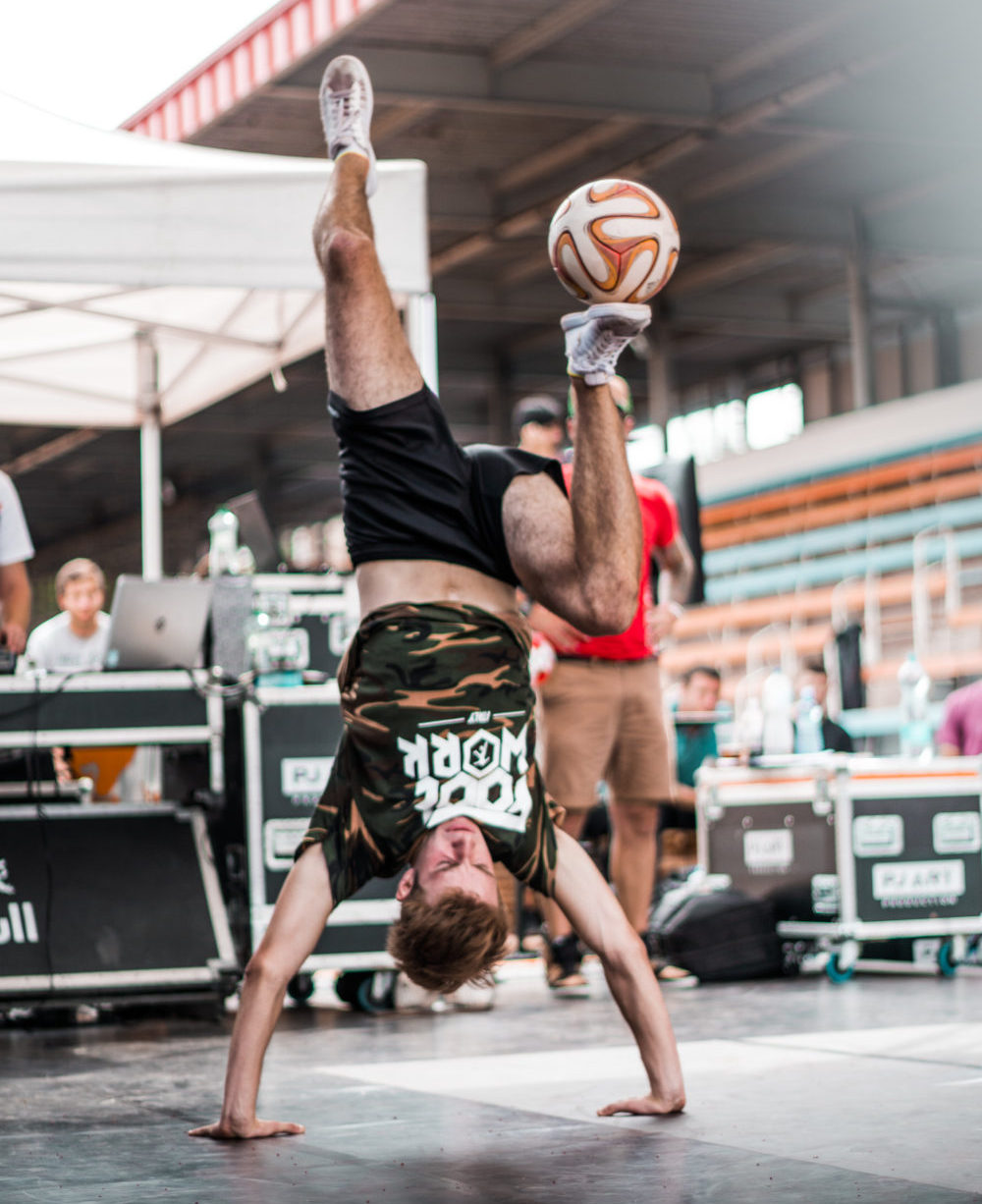
It does feel like it isn’t just the level that has changed in recent years, but also the approach to training for them. I feel like this plays a strong part in enjoying the experience of competing overall.
It’s totally understandable why some may only want to compete in a particular competition if they feel they can do well or be prepared. But when the competition training takes over from being able to work on those more enjoyable aspects of freestyle, this can make it feel tedious at times.
So to conclude and answer my own question, I wouldn’t say freestyle competitions are getting boring, for both competing or spectating. However, they are getting somewhat repetitive and I can reason with why people don’t want to compete or are just very happy to wait for some highlight videos. Fresh ideas are not necessarily needed right this second, but are welcomed anyway.








